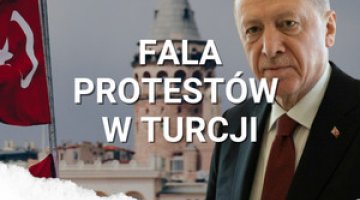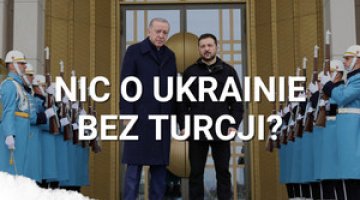Mass anti-government protests in Turkey
The protests have grown from the bottom up; they were not organised by political parties or other socio-political organisations (although they have joined in over time), and the participants have mainly been communicating through social media. During the riots two people have died and over 4000 injured. The events in Turkey have attracted great interest abroad, and led to acts of solidarity with the protesters in many cities around the world; there has also been criticism of the government, including from the EU and the US. The disturbances have also affected the stock exchange in Istanbul, where the main index fell 10.5% on 3 June.
At the root of these events lies a powerful protest by Turkish society against the government’s autocratic style and certain elements of its moral, economic and foreign policies. They do not, however, have deep systemic causes (economic or political), and a resolution to the crisis is – despite its large scale – still possible. However, this requires a clear willingness on the government’s part to enter into dialogue with the protesters. If no solution is found, and especially if the provocative statements or actions on the part of the government reoccur, radicalisation and a sustained rise of internal tensions seems likely.
The protests’ background and characteristics
The Turkish Republic has a long history of mass protests, street fights and political violence. However the current protests, which on individual occasions have numbered in the hundreds of thousands of demonstrators, represent the most violent events of this type for over a decade. It is also the first such challenge to the Justice and Development Party (AKP), which has been ruling Turkey since 2002.
The AKP is a grouping whose political programme stems from Islamic social conservatism, a desire to democratise the political system, liberal economic policies and a pro-Western orientation in foreign policy. A decade of AKP governments under Recep Tayyip Erdoğan has clearly brought Turkey economic growth, deep internal reforms (including the marginalisation of the army’s role in politics), and an enhanced position on the international stage. This has translated into ever-better results in subsequent elections (winning 50% of the vote in the last election in 2011). At the same time, together with the strengthening of the AKP’s hegemony and the increasing personal predominance of Prime Minister Erdoğan over the country’s entire socio-political life, the reformist impulse – which had previously ensured the party broad public support, including from some elements of the secular and liberal urban environments – has weakened. This in turn has been accompanied by an increasing arbitrariness of power, and violent responses to signs of social discontent.
At the heart of the current protest lies the dissatisfaction of some elements of Turkish society – primarily (but not exclusively) the young middle class – with the increasingly arbitrary and autocratic style of Prime Minister Erdoğan’s government. This strong public opposition has been provoked by the following factors: the country’s involvement in the Syrian conflict (which has led to terrorist attacks in Turkey); legislative attempts to restrict freedom of behaviour (such as the recent restrictions on the sale of alcohol); and liberal economic and investment policies which ignore social and environmental matters (Turkey has a strong tradition of leftist and ‘green’ movements). In broader terms, then, the current protest is directed against the entirety of a Turkish political system which meets democratic standards in the procedural dimension (mainly elections following the five-points principle), but which in the dimension of political culture and values is often distant from the liberal-democratic standards which the Western-oriented part of Turkish society has come to expect.
The brutal behaviour of the police, as a symbol of the democratic deficit in Turkey, has in recent days been accompanied by the behaviour of the mainstream media (including a number of private TV channels) which, in fear of the government’s reaction, have reported the protests in only a very limited way. This is further confirmation of the poor state of media freedom in Turkey; 66 journalists are currently being held in prisons and detention centres. Only sustained public pressure, including mass protests in front of one TV station’s HQ, has brought any tangible change in the scope of media coverage of the protests.
The main target of criticism from the protesters, and increasingly the general public, is Prime Minister Recep Tayyip Erdoğan. Since the start of the demonstrations, not only has he made no attempts to defuse the tension, but his confrontational rhetoric (he has said the protests are the work of “marauders”, “extremists” or “inspired from outside”) has served only to intensify it. On 3 June he left Turkey on a visit to Morocco, Algeria and Tunisia. The premier has been criticised for his arrogant comments (according to general opinion) about the current events, his failure to understand the nature of the broad-based and spontaneous nature of the protests (by casting them in terms of the opposition party’s activity, or even as a coup attempt), and especially for his failure to resolve the crisis. Erdoğan’s still strong authority would have made it possible to diffuse the tension relatively easily at an earlier stage, had he shown any signs of conciliatory approach and readiness for dialogue.
International reactions
The large-scale and violent nature of the protests, the authorities’ response with the use of force, the attention devoted to events in Turkey by the world’s media, and the popular sympathy for the protesters in many countries will undoubtedly reflect on the international image of Turkey, both on the political and the economic levels. It will hinder the promotion of the so-called ‘Turkish model’ as an example of the successful establishment of the democratic rule of law in a Muslim cultural environment, and of the peaceful resolution of internal problems. This may affect Turkey’s aspirations to political leadership in the Middle East. In addition, the association (often repeated in the global media) of the events in Turkey with the ‘Arab Spring’ (and thus with political instability), as well as the call by two major trade unions for a strike in support of the protesters, may (if the protests continue) discourage foreign investors, and have a detrimental effect on financial markets and tourism. In the context of Turkey’s economic dependence on external capital, this could lead to serious economic disruption.
Forecasts
Turkey is a democratic country with firmly-rooted state and political institutions, as well as a strong national and civic consciousness, and so prolonged nationwide destabilisation of the situation on an ‘Arab Spring’-level seems unlikely. What is likely, however, is a sustained rise of internal tension.
The protests in Turkey have not been caused by systemic problems, such as an authoritarian political system (as in the countries of the Middle East) or chronic economic crisis (as in some Western European countries), but rather by opposition to the way in which the government uses its power and its conservative moral agenda, together with demands to democratise the political culture. This suggests that the crisis can be averted, but the brutality of the police, Prime Minister Erdoğan’s persistent lack of readiness to enter into dialogue and his confrontational statements have all contributed to an escalation of tension. A prolonged failure to resolve the crisis will lead to the further politicisation and radicalisation of the ongoing protests, and will undoubtedly make it more and more difficult to reach any agreement. Another potential danger lies in the fact that in the south-eastern part of the country, the crisis is only adding to the already existing tensions caused by the conflict in Syria. This principally concerns the border province of Hatay, where one of two people died as a result of riots on 3 Jun, and in mid-May a terrorist attack killed more than 50 people.
The biggest loser in the current crisis is the prime minister himself, whose attitude has negatively affected not only the level of public support for his policies, but also the position of the party (especially since, by leaving the country, he has effectively washed his hands of responsibility for resolving the crisis and sidelined himself from the most important events in the country). In this situation the popularity of the AKP’s number-two, President Abdullah Gül, has risen; he has attempted to alleviate the crisis together with the Deputy Prime Minister Bülent Arinç. Erdoğan has been the symbol of Turkey’s decade of dynamic growth and success, and has ambitions to remain in power up to the year 2023 (the centenary of the founding of the Republic of Turkey), but now he has unexpectedly become a problem and a burden – not only for the ruling party, but the entire political system. At this point, even the achievement of Erdoğan’s most important project – the change of the constitution to a presidential system and his assumption of this position after the 2014 elections – now seems uncertain.




